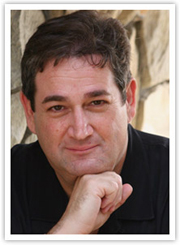By Rabbi Ben Kamin
 SACRAMENTO—It took a Holocaust video to compel the California State Assembly to a moral consensus.
SACRAMENTO—It took a Holocaust video to compel the California State Assembly to a moral consensus.
It was during one of our more recent visits to the state capitol that members of the Interfaith Committee for Worker Justice—a multi-cultural panel of activist clergy—discovered a genuine poignancy in the midst of the mendacity of California state politics. While we have a long way to go to get the legislature to pass a “Moral Budget,” yet we don’t look in vain for traces of morality “on the hill.”
Our host, San Diego-area assemblyman Marty Block, an earnest, approachable, and literate lawmaker who puts his heart on the table along with his brains, invited two of us (both rabbis) to his newly-conceived, independently-run, bipartisan, monthly “Capitol Knesset” meeting. Here came an eclectic mixture of overwhelmingly Jewish legislators, lobbyists, regional professionals, chiefs of staff, journalists, and a garrulous, blissful, if disheveled Chabad rabbi for a quick-paced, cell-phone riddled, not-always-focused but decidedly touching group schmooze and deliberation over delivered pizza and sodas.
“There just isn’t any other vehicle for us to convene and share our feelings around here.”
Speaker of the Assembly, John A. Perez, a portly, gay man of truly humble Mexican roots, came by the meeting to express his affinity and support. Among the other gentile friends who attended was an Irish colleague who enthusiastically announced his admiration for the Jewish War Veterans society, reminding us that it was “the first such Veterans group in America.”
The primary impetus for the meeting that day was for us to review a heartrending video that had just been shown by Mr. Block and Assemblymember Bonnie Lowenthal to the full state assembly: ECHOES OF TRUTH: Holocaust Memorial Project 2011. This is an 11-minute collage of students interviewing now-elderly Holocaust survivors who recount their experiences in the death camps with disarming and painful candor. The piece includes rare color footage, salvaged from Nazi archives, of “life” in the actual camps. Few men and women in the room were not moved to tears.
The gathering of political Jews began a pressing discussion about the growing isolation of Israel in the world community and the attendant rise of anti-Semitic acts and expressions, most notably on college campuses. The reprehensible “BDS” [Boycott-Divest-Sanction] movement, too-often harvested among knowing academia, was spoken about with distress and anxiety. Republican Assemblymember Nancy Halderman, erudite and thoughtful, a surgeon by profession, proposed that the “Capitol Knesset” implore the full Assembly to implement some kind of “Stand With Israel” legislation. She suggested that the measure be introduced by a non-Jewish member.
There were some concerns expressed about this being “a foreign policy matter,” outside the purview of the California legislature. I had a feeling that Dr. Halderman was not going to yield her strong spine on this issue.
After the Chabad rabbi invoked the gathering to remember the coming revelation holiday of Shavous, reminding them that his service would feature “cheesecakes and da Ten Commandments,” I asked Marty Block why he had started this monthly Jewish meeting within the state capitol.
“There just isn’t any other vehicle for us to convene and share our feelings around here. And frankly, we want some kind of body in place for when the Jewish community is attacked.”
Marty Block’s words were as old as the Bible and as new as the developing Arab summer.
*
Rabbi Kamin is a freelance writer based in San Diego. He may be contacted at ben.kamin@sdjewishworld.com